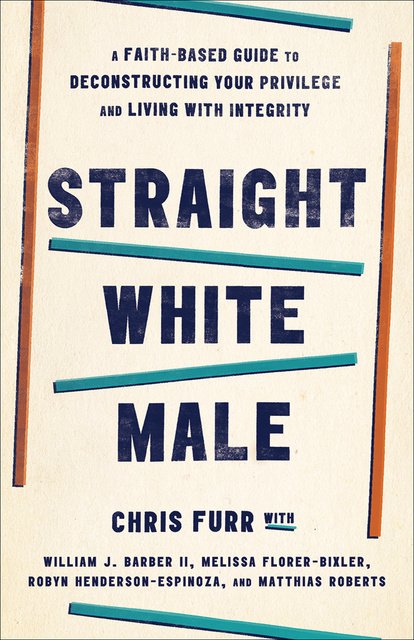James Baldwin is among those who has seen whiteness in America most clearly. In 1963, in an interview with psychologist Kenneth Clark that aired on PBS, Baldwin cut to the heart of the matter, asserting that he was “not a n*****, but a man”, and that it was up to white people to find out why they had a need for a “race” they could use to elevate themselves in the first place. “If I’m not the n***** here and you invented him, you the white people invented him, then you’ve got to find out why. And the future of the country depends on that, whether or not it is able to answer that question.” This is precisely the correct question for white people to ask ourselves, but we have seldom reached the spiritual and emotional maturity to approach it. Science has shown us that race is a social construct, and history demonstrates that race was systematically developed as an idea; but if we do not understand why, we cannot understand ourselves. Geneticists are helping to understand the lie of racial difference; ethnic groups in West Africa have more in common genetically with people in Western Europe than they do with people in Eastern Africa. What is it, in us, that we are unable to trust that we were made in the image of God and must denigrate the image of God in another? Baldwin wrote “White people in this country will have quite enough to do in learning how to accept and love themselves and each other, and when they have achieved this—which will not be tomorrow and may very well be never—the Negro problem will no longer exist, for it will no longer be needed.”
It could be said that much of what white people have historically ascribed to black people is projection. That is, what we do not understand, do not like, or are ashamed of in ourselves become the racialized generalizations we make against black and brown people. In the earliest days of this country, when Africans were brought here and sold as property, the language from European intellectuals—especially Christians—revolved around evangelizing and civilizing the so-called African “savage.” The irony, of course, is that the Europeans who migrated to the Americas came from cultures that had engaged in tribal warfare and organized systems of violence. Christianity did (and still does) little to quell a penchant for violence; rather, followers of Jesus have worn crosses into battle. Today tourists wander the Tower of London, home to horrifying medieval torture in the place that fancied itself the world’s primary exporter of culture and intellectualism. Heretics were burned at the stake in England until the early 1600s (the first Africans arrived in America in 1619). Resmaa Menakeem writes that it is not difficult to understand why humans felt the need to flee England: “Many of the English who colonized America had been brutalized or had witnessed great brutality first-hand. Others were the children and grandchildren of people who had experienced such savagery in England. “Europeans transported African men, women and children in the cargo holds of slave ships, packing bodies together in such inhuman and unsafe conditions such that an untold number of human beings created in the image of God died and were unceremoniously buried in the Atlantic. White slaveowners raped and beat black women but portrayed the black male as the one whose sexual urges could not be controlled. White southerners—little more than 100 years ago—took picnics to and sent postcards from lynchings. Who, here, are the savages? Who is in need of the gospel, of being evangelized?
JOIN: POOR PEOPLE’S CAMPAIGN MORAL MARCH ON WASHINGTON
White supremacy is a verdict in search of evidence. Why is that evidence so important? Historian Nell Irvin Painter brings forward a helpful conclusion from sociologist Max Weber. Wealthy, privileged people want to believe that what they have comes from “underived, ultimate, and qualitatively, distinctive being. . . the fortunate man is seldom satisfied with the fact of being fortunate. Beyond this, he needs to know that he has a right to his good fortune. He wants to be convinced that he ‘deserves’ it, and above all, that he deserves it in comparison with others . . . Good fortune thus wants to be ‘legitimate fortune.” White people want to look around at the advantages that are overwhelmingly theirs, in all areas–poor whites to poor blacks, white women to indigenous women, non-binary white people to non-binary Asian-Americans—and believe that these advantages can somehow be justified. Otherwise, it is clear we have not earned what we have, and in a capitalist society that prizes hard work and acquisition, that is a statement on our value as human beings. We need these myths in order to live in denial about how much of what we have should not, in a just, peaceable world, be ours in the first place.
White Christians will pray on Sunday morning about the God of grace; they will speak openly about the unmerited love of Jesus that is born out on the cross, and acknowledge that our lives do not often honor such a sacrifice. However, at the mere suggestion that perhaps the color of their skin has helped them in their career, there is immediate reticence. Perhaps our language about our inadequacy in light of God’s unconditional love is just that, talk; or perhaps we have internalized it, believe we are unworthy, and are out to prove that worth in other ways. The truth of the gospel is that God first loves us, first offers us grace without any assurance that we will have somehow be found “worthy.” We are worthy only because God has made it so. The irony is, nothing puts just how unlove-able we can be in starker relief than when we soothe our own insecurities by doing physical, economic, emotional and spiritual violence to our siblings of color.

